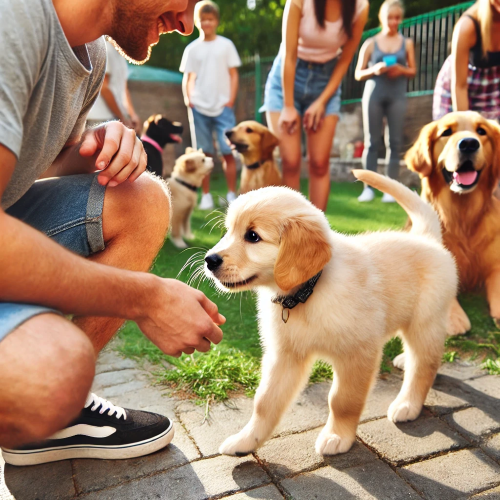Socialization is critical for raising a confident, friendly puppy. This guide explains how to safely introduce your pup to the world, from people to other dogs. Start early to prevent fear and aggression, ensuring your puppy grows into a well-adjusted adult.
Why Socialization Counts
Puppies need positive experiences before 14 weeks to adapt to life’s variety. Proper socialization reduces anxiety around strangers or new settings and prevents behavioral issues. It’s a cornerstone for a happy, sociable dog.
Step 1: Start at Home
Invite calm friends over to meet your puppy, offering treats for good behavior. Play different sounds (vacuum, traffic) at low volume to desensitize them. Keep it positive and gradual, building their comfort with new stimuli.
Step 2: Meet Other Pets
Arrange playdates with vaccinated, friendly dogs. Start with one-on-one meetings in a neutral space like a yard. Watch for stress signs (tucked tail, growling) and intervene if needed to keep interactions safe and fun.
Step 3: Explore New Places
Take your puppy to parks or pet stores on a leash, letting them observe from a distance. Gradually get closer to people, bikes, or noises, rewarding calm behavior with treats or praise. Exposure builds confidence over time.
Avoiding Overwhelm
Too much too soon can scare them. Go at their pace, stopping if they seem anxious. Avoid busy dog parks until they’re vaccinated and confident—small, controlled settings are best for early socialization efforts.
Tips for Success
Carry treats to reward bravery and pair socialization with playtime for fun. Expose them to hats, strollers, and kids safely. A variety of experiences now prevents fear later. Keep sessions short and upbeat.
Socializing your puppy takes effort but pays off in confidence and friendliness. Follow these steps for a happy, adaptable dog. See our other guides for more puppy training advice to support their growth!
